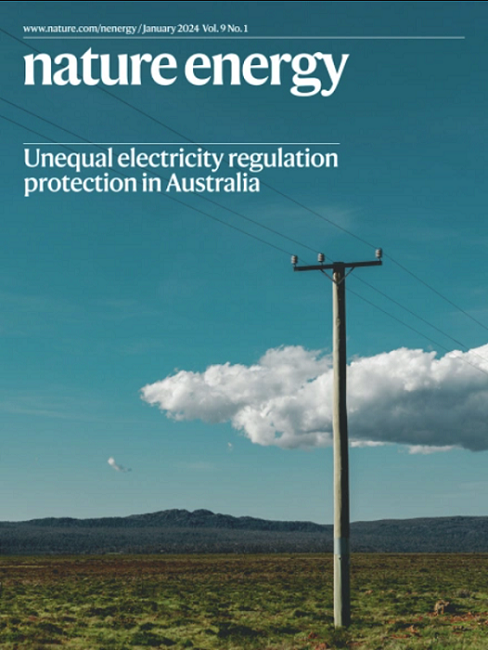本地能源措施
IF 60.1
1区 材料科学
Q1 ENERGY & FUELS
引用次数: 0
摘要
人们日益认识到,公民参与对于确保当地社区在与能源转型相关的决策过程中发挥直接作用至关重要。然而,相对而言,我们对国家和超国家层面的政策如何影响地方能源项目知之甚少,而公民更有可能参与其中。现在,来自瑞典乌普萨拉大学和Nordregio的Johanna Liljenfeldt及其同事探讨了成员国和欧盟层面的能源政策如何促进或阻碍当地的能源倡议。研究小组以瑞典的三个当地能源项目和丹麦的一个项目为重点,采用了探索性的案例研究方法。与一系列项目参与者、业主、政治参与者、顾问和合作伙伴进行了半结构化访谈和互动研讨会,以考虑对当地能源倡议所有权的看法,以及欧盟政策及其对当地项目发展的影响。研究小组发现,欧盟政策的转变支持增加能源公民身份,为当地的主动性增长创造了积极的环境。然而,更广泛的能源政策、税收和法规往往忽视了空间背景的重要性,因此可能会给区域关键能源项目带来意想不到的障碍。这项工作的结果强调了将地方一级的倡议进一步纳入整个能源政策制定过程的重要性。本文章由计算机程序翻译,如有差异,请以英文原文为准。
Local energy initiatives
求助全文
通过发布文献求助,成功后即可免费获取论文全文。
去求助
来源期刊

Nature Energy
Energy-Energy Engineering and Power Technology
CiteScore
75.10
自引率
1.10%
发文量
193
期刊介绍:
Nature Energy is a monthly, online-only journal committed to showcasing the most impactful research on energy, covering everything from its generation and distribution to the societal implications of energy technologies and policies.
With a focus on exploring all facets of the ongoing energy discourse, Nature Energy delves into topics such as energy generation, storage, distribution, management, and the societal impacts of energy technologies and policies. Emphasizing studies that push the boundaries of knowledge and contribute to the development of next-generation solutions, the journal serves as a platform for the exchange of ideas among stakeholders at the forefront of the energy sector.
Maintaining the hallmark standards of the Nature brand, Nature Energy boasts a dedicated team of professional editors, a rigorous peer-review process, meticulous copy-editing and production, rapid publication times, and editorial independence.
In addition to original research articles, Nature Energy also publishes a range of content types, including Comments, Perspectives, Reviews, News & Views, Features, and Correspondence, covering a diverse array of disciplines relevant to the field of energy.
 求助内容:
求助内容: 应助结果提醒方式:
应助结果提醒方式:


